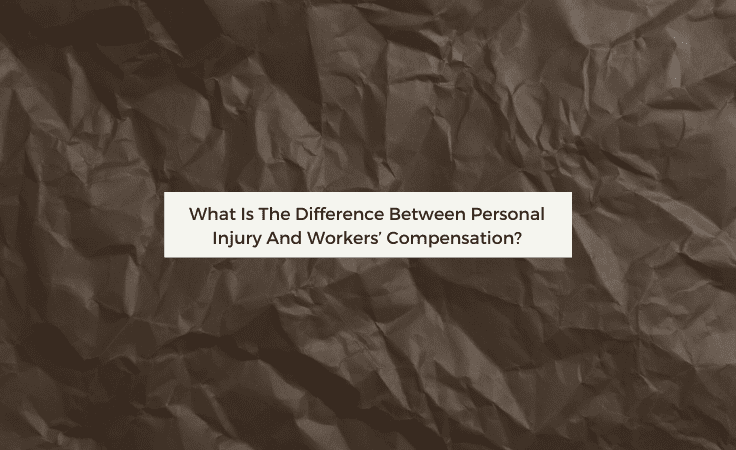Accidents can happen at any time and in any place, including your home, at school, or in the workplace. Depending on the circumstances of your case, you may be able to claim compensation for certain damages after an injury, like medical expenses or lost wages. However, the process you enter to obtain this compensation will change based on whether you suffered an injury at work or not.
California Workers’ Compensation Law
In the state of California, you can collect compensation for injuries you suffer on the job. You must prove that your workplace duties caused the injury, such as overexertion while lifting boxes or a slip and fall on your construction site. Through a workers’ compensation claim, you can collect benefits for lost wages and disability, as well as funds for your injury-related medical expenses.
Only injuries that occur during the course of your job qualify for workers’ compensation benefits. If you suffer an injury during a commute, on your lunch hour, or even while stepping outside for a quick 15-minute break, workers’ compensation insurance will most likely not approve benefits for you.
If someone else’s negligence or recklessness caused your accident, you may be able to file a personal injury lawsuit or insurance claim against him or her – even if it happens on the job. This is true in cases where a third-party causes your injury at work, a defective product harms you, or your employer acts in an intentionally harmful manner.
What Is a Personal Injury Case?
Whether you suffer an injury at work that doesn’t fall under workers’ compensation or you are in an accident outside of work, you may be eligible for compensation through a personal injury lawsuit or insurance claim. For an accident to qualify under personal injury, someone else’s negligence must have caused it to occur.
You can claim many different types of damages in personal injury cases, including the following.
- Past and future medical expenses related to the injury, including medications, surgeries, and doctor’s visits
- Lost wages during recovery time
- Emotional damages, like pain and suffering and a loss of quality of life
- Disability accommodations to a home or vehicle
- Property damage sustained in the accident
- Punitive damages in situations where the at-fault party acted in an especially reckless or negligent manner
What Should You Do After an Accident?
If you are in an accident, you will need to take certain steps to preserve the evidence necessary to file your insurance claim, lawsuit, or workers’ compensation claim.
If you suffer an injury on the job, take the following steps.
- Seek medical attention as soon as possible. Your employer may require you to visit a specific doctor or you can choose one on your own – verify with your employer before you leave.
- Report the injury to your employer within 30 days of the accident.
- Receive your workers’ compensation claim form from your employer and complete it. Contact an attorney if you need assistance with your claim.
- Receive a decision from the workers’ compensation insurer within 90 days of filing.
- If the insurance company denies your claim, you can file an appeal. Contact an attorney to help you build your case.
If you suffer an injury anywhere outside of work or during a lunch break, take the following steps.
- Call 911 and bring law enforcement and medical attention to the scene immediately.
- Take photographs of your injuries, any vehicles involved, and the area where the accident occurred.
- Collect the contact information for the at-fault party and any witnesses in the area.
- Seek medical attention as soon as possible for your injuries and save all documentation.
- Contact a personal injury attorney in Bakersfield to assist you with your insurance claim or lawsuit.
Personal injury and workers’ compensation are two different legal processes that can lead to different types of compensation or benefits. The main difference between the two is whether or not you suffered your injury on the job.
If you are unsure about your case’s category or wish to discuss the legal processes further, contact a California attorney who works with both personal injury and workers’ compensation cases. Your attorney will be able to advise you on which path you should pursue to claim compensation.
